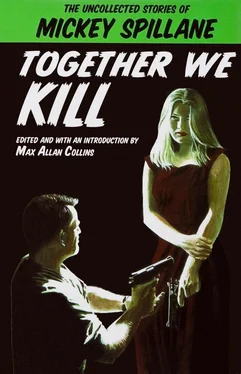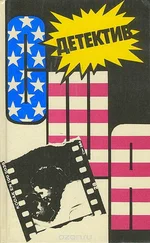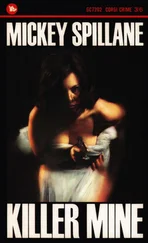“I’d appreciate it, Joe.”
“I’ll get right on it. Keep your head out of the cockpit.”
“You know me.”
When I hung up, I dialed George Clinton to see if he had found anything out. “Cat Fallon, George. Find your man?”
There was a small hesitation, then, “Yeah, I got him.”
“Well?”
“Your buddy Tucker Stacy was working against the Castro bunch, all right. He was making arms drops, but from what I gather it was more of a cover for something else. He was closer to the political situation.”
“What do you mean?”
“He was hauling important people in and out of Cuba, working on the big end. Now listen, these people of mine have funny sources of information. It’s damn reliable, and in their kind of work they have to be sure of the score. At the same time, they don’t want to get involved. They come up with more stuff than the CIA. You know what happens if any of this leaks through you? Even Slim Upgate won’t try to help you.”
“I’m clued in, buddy.”
“Okay then. Ever since the Bay of Pigs, something big has been in the works down in Cuba. Nobody seems to know what it really is, but it’s mighty explosive. Our own agencies have been working on it and running up against a wall. Whenever someone gets inside the Castro outfit and learns something, they never show up again, so their counterespionage must be pretty good. Whatever’s going on, Stacy was wise to it. He got so hot none of the boys would do business with him. They’ll peddle guns, ammo, equipment — but nix on politics. They can be hit from both ends if they try.”
“How about Andre Marcel?”
“A Castro boy. He doesn’t give a damn about arms shipments because the Reds can out-supply anything the black market can send over from the U.S. He’s strictly political. A rough guy. I’ll tell you something else, too. Nobody seems to think Stacy died accidentally. He had some live cargo with him when he went down, somebody from the hills with proof of what was going on down there.”
I said, “That’s all?”
“That’s all anybody will talk about. What comes next?”
“A trip to Miami. I want to find out a little more about that accident. And give me a contact there.”
“Try Felix Ramsey at the Cable-Hurley Supplies Company. It’s listed in the book. Felix runs the operation from behind the scenes. He’ll go along with whatever you want as long as it’s in line with policy.”
“Got it. Thanks.”
“Good luck. You want my boys?”
“I’ll handle it.”
When he hung up, I called Upgate in New York and passed on the word. Slim seemed pleased and wished me luck, too, without asking what I was doing. I cradled the phone and sat there thinking the thing through. But it still boiled down to just one thing... who were Cristy and Verdo?
“Do I look all right?” she said from the doorway.
Lois Hayes was sheathed in black, the sheen of a soft fabric clinging to the curves of her body. A wide belt nipped her in at the waist, giving the thrust of her breasts the look of aggressive jetpods on a Boeing 707. I had to laugh.
She frowned. “What’s so funny?”
“Nothing. What’s the outfit for?”
“I thought you’d take me with you.”
“Why?”
“Because you’re looking for something. So am I. It may be the same thing.”
“What’ll you do with it when you find it, kid?”
She took a few long-legged strides into the room so I could get the full effect. “I want to write about it. That’s my job.”
For an instant she had that dedicated look again, then she turned slowly and gave me the total charge of those deep blue eyes. “Will you take me?”
I shrugged. “Why not. Maybe you can pull some strings I can’t. Only let’s go now before I get sexy.”
Hurricane Ingrid had picked up speed since the last weather check. Miami had it at full strength with winds over the 100 mph mark and alerts going out all along the coast. So far the state was only tasting the far-reaching effects of scud and heavy gusts, but in a few more days Ingrid was going to tear things apart if she stayed on course. The patrol planes had it heading directly for Cuba, and if it followed the normal track, it would continue toward Florida.
Charlie Traub felt a little uneasy about me going out, but I filed a flight plan for Miami, made a visual check of the Mustang and helped Lois into the jump seat. She wasn’t going to be comfortable and I didn’t care, but there was no word of complaint from her at all. Installing that back seat knocked out the fuselage tank, but I didn’t need the range much.
I started up, checked the mags at the end of the runway and got a tower clearance for take-off. Once in the air, I switched to the Miami frequency and stayed on a heading until the airfield was in sight.
Lois made my first contact for me, a local reporter named DeWitt who had written the original story of Tuck’s disappearance- the one the wire services picked up. We met over coffee in a restaurant and he laid out a folder of clips on the incident. There were several pictures of Tuck beside a plane at the Capital K, one at a ground-breaking ceremony somewhere in Celada and another taken outside the state capitol. Most of the copy was devoted to his activities in helping build Celada from a nothing town to a national tourist spot, but because of the unknown factors surrounding his death, the details mainly centered on the squall line he was supposedly caught up in, the extent of the search and the statement of the helicopter pilots who spotted the wreckage and the fisherman who collected a few fragments.
I jotted down the names of the pilots and the fisherman, thanked DeWitt and got on the phone to the airbase. Captain Rob Olsen was on alert but at his home, and when I located him he said he’d meet me at the club in an hour. This time I let Lois rent a U-Drive-It on her credit card and drove on out to the field.
The captain’s story was concise... it was a routine search mission in a given area that extended no more than ten miles off shore on the supposition that Tuck had simply tried to skirt the storm and got caught up in it. He had pictures of the pieces of flotsam from the Staggerwing Beech. Enlarged, they showed a seat cushion, pieces of fabrics and a dented GI gas can with a familiar white hand and a large K beneath it. Twisted around the can were unmistakable parts of aircraft framing and more fabric. Since his helicopter was not equipped with floats, Captain Olsen had not made an attempt at pickup, but radioed the location to his base. Then a boat was sent out. However, before the patrol boat arrived, the fisherman got there, attracted by the chopper, salvaged the wreckage and later handed the remains over to the government launch.
Before we left, I told Captain Olsen I was a pilot, briefed him on my background and asked him what he thought of the squall line.
“That’s the funny part,” he told me. “It wasn’t that bad. The Beech could have made it without any trouble, I’d say, but you know thunderheads. Maybe he hit it at the wrong spot.”
“But it could have been torn up in the storm?”
“It could have been.”
“Thanks, Captain.”
Later Lois said, “What now?”
“I want to be certain of something.”
“Do you mind telling me what you are really after?”
“I don’t think you’d understand.”
“Why not?”
“Because you aren’t curious enough, honey. You sit and listen while I talk — like you knew all along what’s going on and are just letting things stall out. You’re supposed to be a reporter with a newsy nose. You gather facts for a political hack who is always after our government policy, but you aren’t prying a bit.”
Читать дальше





![Микки Спиллейн - Death of the Too-Cute Prostitute [= Man Alone]](/books/437201/mikki-spillejn-death-of-the-too-thumb.webp)